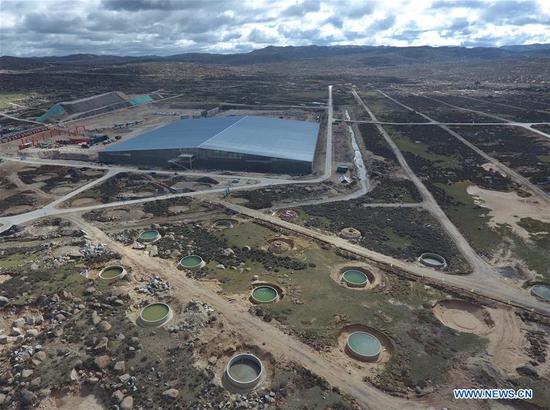Booming e-commerce sector attracts overseas funds
The rapid development of China's e-commerce market is leading the sector around the world and becoming an accelerator driving domestic consumption transformation and upgrading, experts said, and the sector's huge growth potential is likely to attract more foreign investment.
During the "618 Shopping Festival" initially launched by JD.com Inc in 2010, the e-commerce company racked up record transactions of 159.2 billion yuan ($24.7 billion), up from $119.9 billion yuan last year. The record was set over the first 18 days of the month.
Also, Alibaba's e-commerce platform Tmall said sales of smartphones exceeded 10,000 within 5 seconds after midnight on Monday. On Monday, over 70 million consumers participated in physical stores that featured Tmall's 618 activities.
Apart from JD.com and Alibaba, cross-border e-commerce platforms such as kaola.com, vip.com and ymatou.com joined the promotion.
Shopping festivals are like sales promotion "wars," a Beijing-based independent analyst surnamed Li told the Global Times on Tuesday. "E-commerce platforms used various gimmicks to promote sales like usual during this year's '618 shopping festival'," he said,
For example, a woman in Nanjing, East China's Jiangsu Province, was chosen by Tmall in a lottery game to receive 618 packages of products on Monday, according to Tmall's Weibo account.
Despite the huge sales volume, the most obvious change of this year's "618 Shopping Festival" was a greater emphasis on quality and service, which are the main features of China's consumption upgrading, said Zhao Ping, director of the Department of International Trade Research at the China Council for the Promotion of International Trade.
Zhao told the Global Times "the shift in consumers' demand will further boost China's e-commerce business and also the country's economic development."
The business models and technologies of the e-commerce sector can be applied more broadly into the manufacturing industry and the services sector to advance the transformation and upgrading of the real economy, she said.
Technology like big data and cloud computing can be used to provide more information for companies to promote their research and development of products and to improve services, noted Zhao.
The boundaries of China's e-commerce sector continued to expand in 2017, and the nation's online retail industry became the world's largest, said a report released by the Ministry of Commerce (MOFCOM) on May 30.
Domestic e-commerce transactions rose 11.7 percent year-on-year to 29.16 trillion yuan in 2017, and online retail sales reached 7.18 trillion yuan, up 32.2 percent on a yearly basis, it said.
MOFCOM spokesman Gao Feng told a meeting on June 7 that online retail sales currently contribute more than 37 percent of the growth in China's total retail sales.
Analysts said that overseas companies are optimistic about China's retail market thanks to its large demand and great growth potential driven by domestic e-commerce businesses, and more foreign investors are eyeing cooperation with Chinese companies as they have advanced technologies and rich experience.
For example, JD.com announced Monday that it received investment of $550 million from Google. The companies will jointly explore retail business around the world.
Zhao said that the fast advance of China's e-commerce sector has created increased opportunities for foreign investors because many innovative technologies and business models have come into being in the domestic market, and this signals great growth potential.


















































